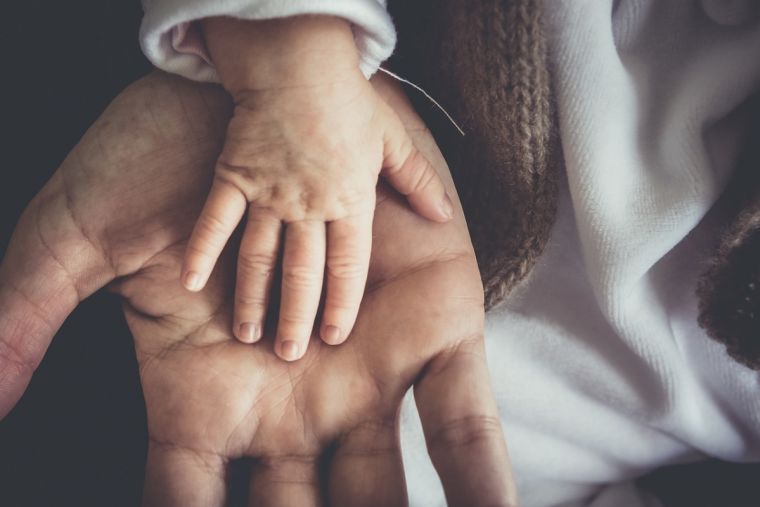A grotesque abortion ruling defeated – but why was an abortion activist the judge?

You will have an abortion, she said.
You will have an abortion even though you wish to keep the baby. You will have an abortion, even though your mother has said she will care for the baby if you cannot. You will have an abortion, though your social worker has said the pregnancy should proceed. You will have an abortion, even though you are now 22 weeks pregnant.
You will have an abortion because we will not countenance the child being adopted or fostered. You will have an abortion, the judge said. And that is the end of the matter.
Except that, by the grace of God, it wasn't. A court ruling last Friday, which sickened Christians across the UK has now been overturned by appeal judges. Hallelujah and Amen!
The original decision by Judge Nathalie Lieven in the Court of Protection was that a young woman with a learning disorder should be forced to have an abortion – against her will.
But in the Court of Appeal on Monday, Lord Justice McCombe, Lady Justice King and Lord Justice Jackson overturned the decision. Their reasons will be made public later. But even as countless Christians rejoice over the saving of a child's life, many questions come to mind:
1. How could a pro-abortion activist have ended up judging this case?
Yes, that's right: Judge Nathalie Lieven, who made the initial decision last Friday, was until recently a prominent campaigner on this very issue with clearly-articulated hard-line views. On the website of First Things, the American public affairs journal, writer Obianuju Ekeocha documents how prior to becoming a judge as recently as January, Lieven "had a prominent place in the British pro-abortion movement" for 15 years and "championed the cause of abortion in the UK."
Ekeocha says that as a lawyer, Lieven was "the voice of abortion organizations" and "argued to increase abortion access in the UK." She "fought against the rights of parents with regards to their children, claimed that the foetus does not have an autonomous right to life under UK law, and has spoken on panels dedicated to abortion rights-related litigations." The details of Lieven's involvement in pro-abortion campaigning can be read here and here and for UK abortion provider BPAS here.
So how could an activist end up judging a case like this? We may well wonder. There are all sorts of questions that need to be pursued further here.
2. How could anyone doubt the human dignity of a 22-week old foetus?
If you have any doubt about the humanity of a baby at this stage, search 'foetus 22 weeks' on Google and look at the pictures which come up. Or read what one website tells mothers-to-be: "When you are 22 weeks pregnant, your baby's eyelids are still fused shut, but the eyes themselves are starting to move. Tear ducts are also forming and your baby now has eyebrows... Your baby is becoming more and more responsive to external stimuli."
It continues: "If you were to have an ultrasound this week and there were to be a loud noise during the scan, you might see your baby react ... Your baby's brain is rapidly developing, and nerve endings are forming. By about now your baby has developed a sense of touch, which means he might be experimenting with this new sense by... sucking his thumb."
Some may want to argue about the precise moment a distinctive human life begins, but I think we can safely say it is before 22 weeks. And that's without even touching on theological considerations.
3. Why are fostering and adoption not more valued in our society?
In her initial ruling, Judge Lieven seems to have given this idea short shrift. That is tragic. Last year in England and Wales there were more than 200,000 abortions. At the same time, tens of thousands of other couples were going through infertility treatment.
Indeed, there are an estimated 76,000 IVF treatments each year. While recognising the complexity of individual situations, there must be some homes where adoption of children who might otherwise have been aborted would be a happy solution.
4. How far should the state intervene in cases such as this?
For the state to force a mother to have an abortion when both she and her social worker and the unborn child's grandmother are opposed to the idea is grotesque. The UK's Right To Life campaign group is quite right to ask the government to reveal how many cases like this there have been in the last decade; we need to know.
So let us give thanks for the Court of Appeal decision. But let's keep asking questions and campaigning. One young life has been saved. But, on current reckoning, another 200,000 this year will be lost. They have no voices but ours.
David Baker is a former daily newspaper journalist now working as an Anglican minister in Sussex, England. Find him on Twitter @Baker_David_A











